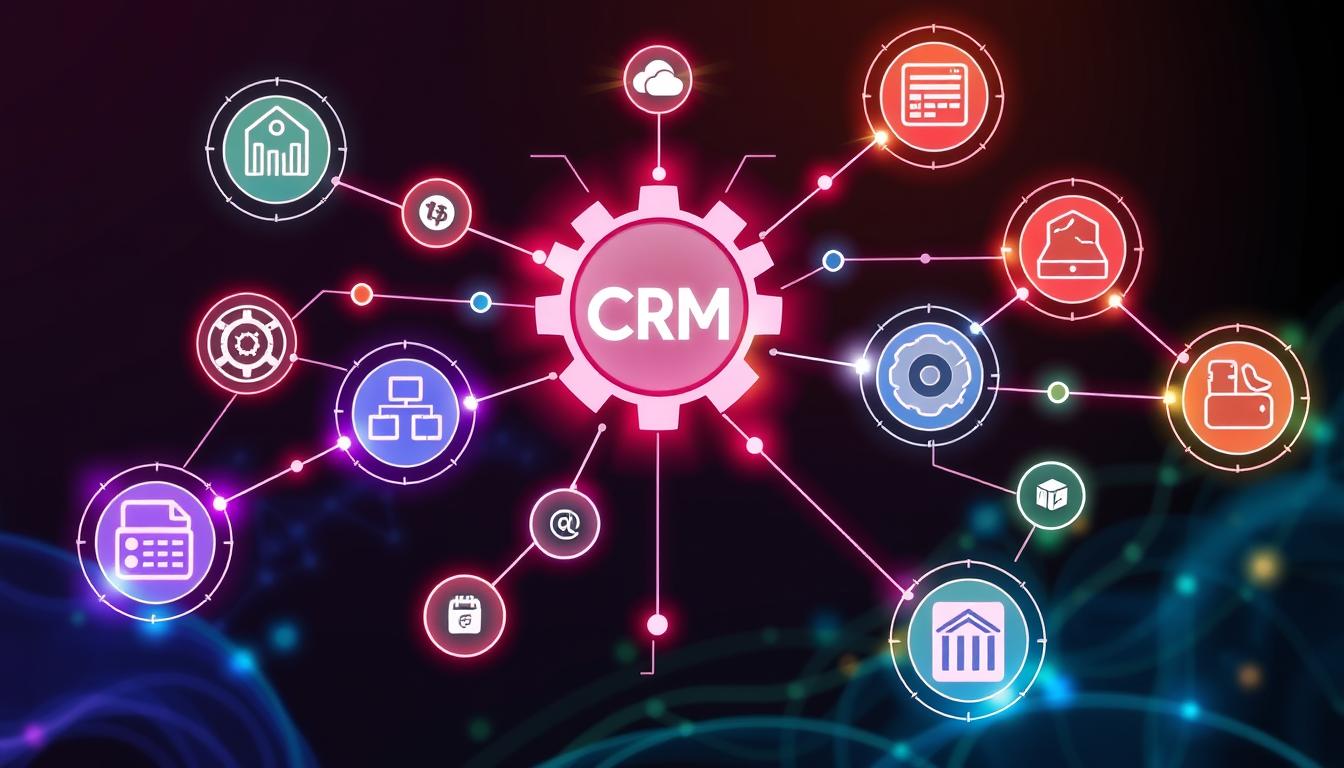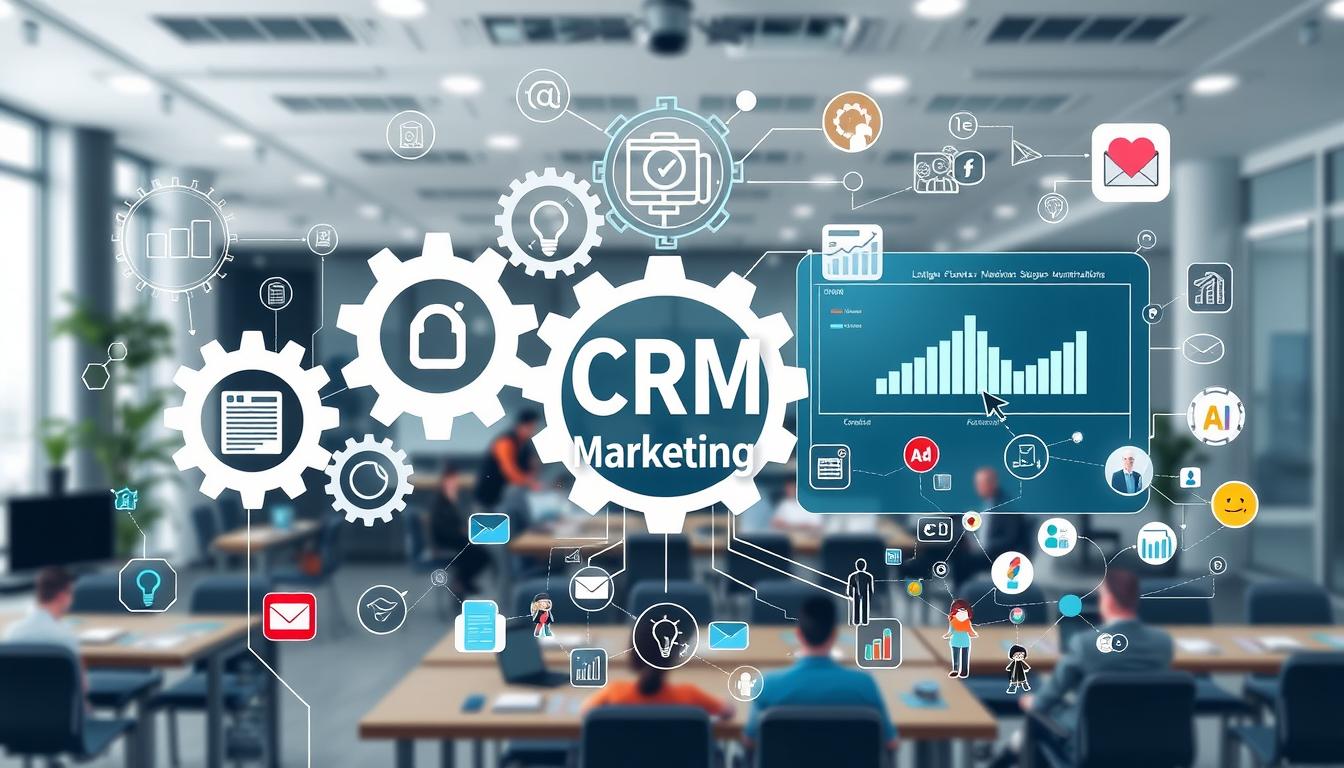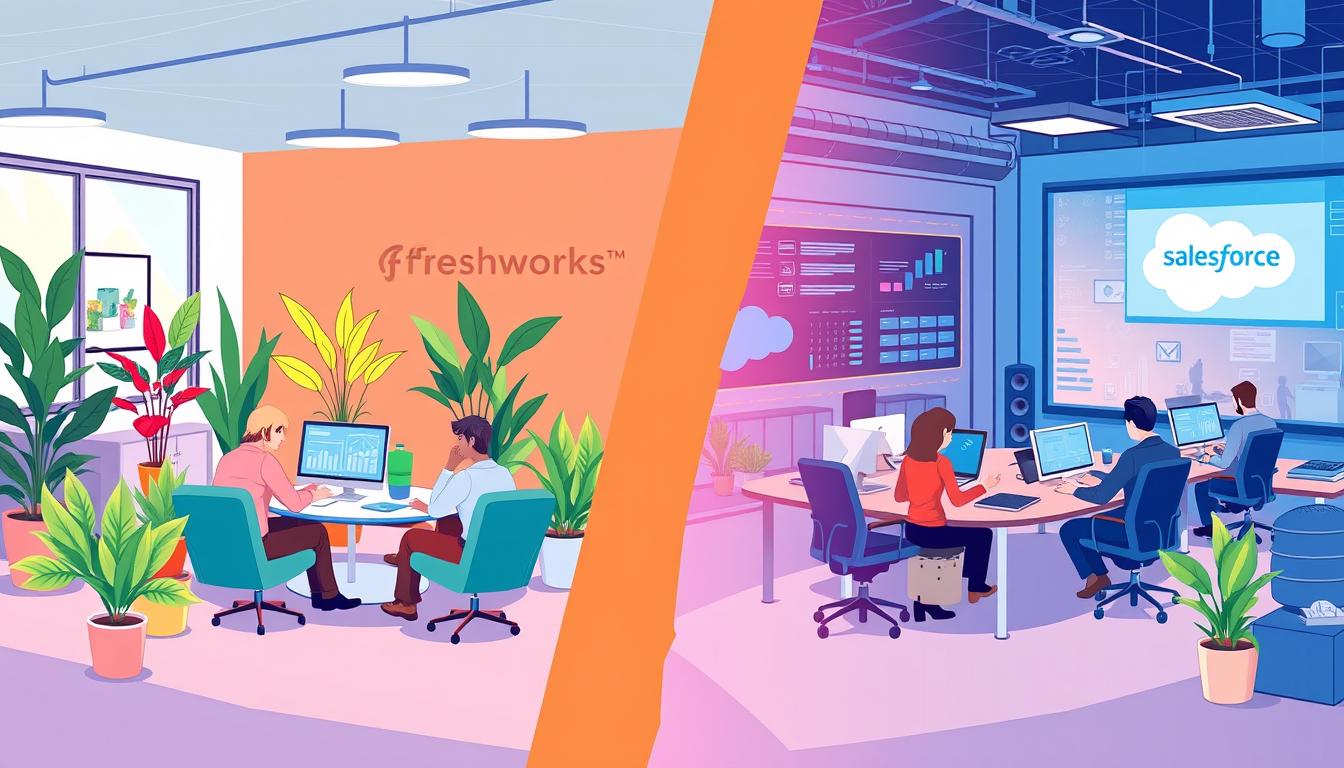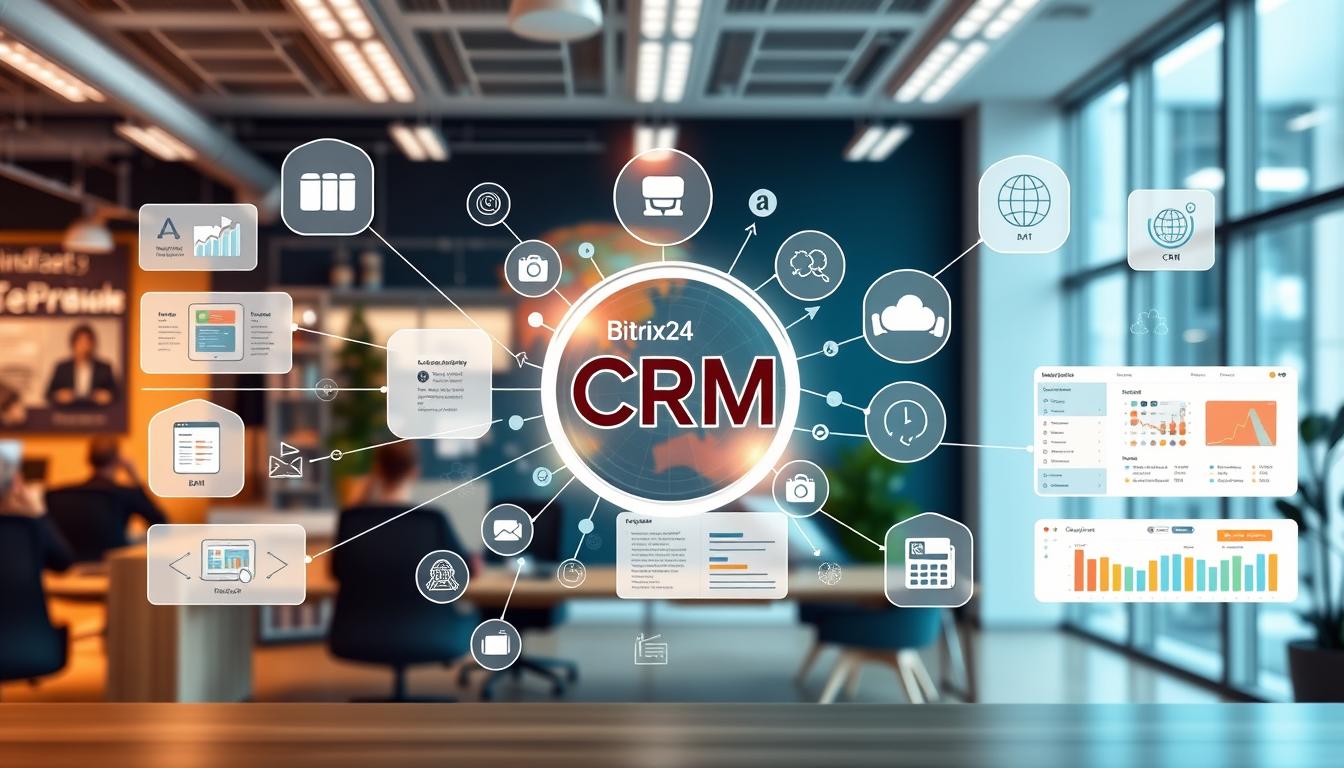Last Updated on December 9, 2025
As your business grows, selecting the right Customer Relationship Management (CRM) software is crucial. Salesforce and HubSpot stand out in this arena, each offering unique benefits. Salesforce, with a 19.6% market share and over 150,000 customers, is a well-established leader. On the other hand, HubSpot has gained traction, attracting more than 56,500 customers, especially among smaller businesses with its user-friendly interface.
Both platforms provide a wide array of features to improve client and prospect management. This comparison will help you choose the best CRM for your business. With features tailored to various needs, you’ll gain insights to inform your decision.
Key Takeaways
- Salesforce is ideal for businesses requiring extensive customization and advanced reporting.
- HubSpot shines with its user-friendly interface and affordable pricing options.
- Salesforce holds a significant market share, whereas HubSpot is rapidly gaining traction.
- Both platforms offer unique features that cater to different business sizes and needs.
- Pricing structures can vary significantly, with HubSpot offering a free tier.
Introduction to CRM Solutions
In today’s competitive landscape, CRM solutions are crucial for managing customer relationships. They are not just tools but the foundation for building strong client connections. These systems help track interactions, analyze customer data, and develop strategies to boost satisfaction. By using effective CRM solutions, businesses can see improvements in communication, sales growth, and customer retention.
Choosing the right CRM platform allows for the integration of marketing, sales, and service processes. This integration provides a comprehensive view of your business operations. It also promotes teamwork, enhancing efficiency. As you explore CRM, remember its potential to foster customer loyalty and drive business success.

Understanding Salesforce: Features and Benefits
Salesforce leads in customer relationship management with its extensive features. It caters to various business needs, from streamlined customer management to advanced analytics. This comprehensive CRM equips organizations with tools for better efficiency and effectiveness.
Comprehensive CRM System
Salesforce’s functionality as a comprehensive CRM is a significant advantage. It offers powerful customer management capabilities and facilitates seamless contact handling, opportunity tracking, and sales automation. This makes it suitable for businesses of all sizes, from startups to large enterprises. With hundreds of thousands of customers, Salesforce proves to be a robust system for success.
Advanced Reporting and Analytics
Salesforce’s reporting features provide deep insights into operations. It excels in delivering Salesforce analytics for customizable reports. This allows teams to analyze customer behavior and sales performance in real time. Advanced analytics empower informed decision-making and strategic planning, leading to improved outcomes. Detailed reports offer sales insights that can significantly impact business goals.
Exploring HubSpot: Features and Benefits
HubSpot is celebrated for its user-friendly CRM that suits businesses of all sizes. Its intuitive design boosts CRM usability, making it perfect for smaller teams or organizations with limited technical resources. The platform’s straightforward navigation ensures quick onboarding, allowing your team to adapt easily.
User-Friendly Interface
The HubSpot features stand out, particularly its user-friendly interface. This design prioritizes simplicity, enhancing the user experience. You can manage tasks efficiently and access crucial information without feeling overwhelmed. This is vital for growing businesses aiming to boost productivity while adopting new technology smoothly.
Integrated Marketing Features
HubSpot shines with its integrated marketing tools within the platform. With HubSpot marketing features, you can leverage marketing automation, social media management, and email campaigns from one place. This unifies your marketing efforts, strengthening customer relationship strategies. Businesses can operate more cohesively, ensuring marketing initiatives align with CRM functionalities.
Salesforce vs HubSpot: Key Pricing Comparison
Understanding CRM pricing is essential when choosing a solution. Salesforce and HubSpot cater to various business needs with different pricing models. Each platform offers unique features, making a thorough comparison crucial for decision-makers.
Salesforce Pricing Plans
Salesforce pricing begins at $25 per user per month for the Essentials plan. This plan is ideal for small businesses, offering basic CRM functionalities. As you move up to the Professional plan at $75/month and the Enterprise plan at $150/month, costs rise. These higher tiers provide advanced features for customization and support, appealing to larger teams.
HubSpot Pricing Plans
HubSpot pricing is more flexible, starting with a free plan that includes core features like contact management and workflows. Paid plans start at just $15 per user per month, making it accessible for small teams. However, as your business expands, especially with the Enterprise plan, costs can increase significantly. This plan can reach $1,200 per month for ten users, making it more expensive for larger teams.
Ease of Use: Salesforce vs HubSpot
When assessing CRM platforms, the onboarding process and learning curve are crucial. Companies often struggle with setup and navigation. Knowing how each platform supports user experience is key to making a choice.
Onboarding and Learning Curve
Onboarding with Salesforce is challenging, especially for newcomers. Its complex features and customization options demand extra help and training. On the other hand, HubSpot offers a smoother onboarding. Its clear guidance and resources make it easier to begin using the platform.
Many small and medium-sized businesses prefer HubSpot for its easier learning curve compared to Salesforce.
User Experience
HubSpot is celebrated for its clean, intuitive design. Its streamlined interface ensures a seamless navigation experience, allowing users to find key features quickly. Salesforce, while offering extensive functionalities, presents a steeper learning curve.
However, its detailed design supports complex operations that are valuable in the long run. The choice between Salesforce and HubSpot depends on your business needs. Prioritizing ease of use can enhance platform effectiveness.
Marketing Automation: Salesforce vs HubSpot
Effective marketing automation is key to streamlining processes and engaging with your audience. In the competitive CRM market, Salesforce and HubSpot stand out. Each offers unique capabilities tailored to different business needs.
Salesforce Marketing Cloud
The Salesforce Marketing Cloud is designed for large organizations needing advanced marketing tools. It boasts robust segmentation, comprehensive campaign tracking, and advanced analytics. These features provide deep insights for decision-making.
AI-driven capabilities enhance its effectiveness, making it crucial for large teams. You can send up to 5,000 email marketing messages daily. This supports extensive outreach efforts.
HubSpot Marketing Hub
On the other hand, the HubSpot Marketing Hub offers a user-friendly experience for small businesses. Its intuitive interface makes setting up marketing automation campaigns easy. HubSpot’s toolset includes email marketing, social media scheduling, and analytics, even at the free tier.
This makes HubSpot a cost-effective yet comprehensive solution for businesses. For more details on HubSpot’s features, check out this HubSpot marketing review.
Customer Support: Salesforce vs HubSpot
Choosing the right CRM platform is more than just looking at features and pricing. The customer support options for Salesforce and HubSpot can greatly impact your experience and success. It’s crucial to understand the support structures of both platforms before making a decision.
Support Options Comparison
Salesforce support offers a wide range of customer support options. You can get help through phone, online messaging, and live chat. However, Salesforce’s support can be expensive, with many premium features costing extra. In contrast, HubSpot support provides a more streamlined experience with email, phone, and online chat options.
HubSpot Academy is a standout resource, available to users on all plans. This shows HubSpot’s dedication to empowering all users. It’s a key difference that sets HubSpot apart.
Community Resources
Both Salesforce and HubSpot have active communities where users can find advice and share knowledge. The Salesforce community is a valuable resource, filled with users sharing their experiences and solutions. However, newcomers might find it challenging to navigate Salesforce’s complexities.
The HubSpot community, on the other hand, is known for its extensive educational resources. It offers a user-friendly environment that encourages knowledge sharing and collaboration. With access to CRM community resources, you can find solutions and tips from other users, enhancing your experience.
Sales Features of Salesforce and HubSpot
Choosing the right CRM for your business requires understanding the sales features of Salesforce and HubSpot. Both platforms offer a wide range of sales functionalities. These are designed to boost your team’s productivity and performance. Lead management is a key feature, helping you track and nurture potential clients effectively.
Salesforce boasts a vast array of CRM sales tools, leading in advanced reporting and analytics. This allows sales teams to accurately forecast leads, gaining insights into performance and market trends. Businesses using Salesforce can make informed decisions based on data.
HubSpot, on the other hand, emphasizes user-friendly experiences. Its straightforward interface makes it easy for users to adapt, ensuring a smooth transition for your sales team. Many users appreciate HubSpot’s sales features, especially its automation capabilities through its workflow builder.
- Salesforce: Advanced customization options, robust reporting capabilities, ideal for larger enterprises.
- HubSpot: Simplified user experience, free CRM version, and excellent for small to medium-sized businesses.
When comparing sales functionalities, consider your specific business needs and resources. Salesforce offers deep customization for growing operations. HubSpot, with its ease of use and integrations, caters to a broader range of users across various industries.
Integration and Customization: Salesforce vs HubSpot
When examining integrations in CRM, Salesforce and HubSpot showcase distinct strengths. These are designed to meet various business needs. Understanding their capabilities is crucial for selecting the right platform for your requirements.
API and Third-Party Integrations
Salesforce excels with its Salesforce API, enabling integrations with over 1,000 third-party apps. This feature is ideal for businesses aiming for a unified workflow across different tools. On the other hand, HubSpot offers around 500 integrations, mainly focusing on marketing tools. These integrate well with its CRM, offering a cohesive marketing experience but with less depth than Salesforce.

Customization Capabilities
Customization options differ between the two platforms. Salesforce boasts extensive CRM customization capabilities. Users can create bespoke workflows and solutions, often requiring programming skills in languages like JavaScript or Python. This makes it suitable for larger businesses with intricate needs. HubSpot customization, while user-friendly and efficient, has limitations. It caters to startups and small to midsized organizations with a simpler approach to adjustments.
Your choice may depend on your team’s technical abilities and your business’s specific needs. Exploring both platforms can help find the best match for your operations. For more detailed insights, check out this Salesforce CRM review.
Conclusion
When comparing Salesforce and HubSpot, it’s evident that each system caters to different business needs. Salesforce excels for large enterprises with its extensive customization and advanced features. It offers lead scoring, sales engagement automation, and integrated analytics, driving business growth.
For those seeking ease of use and cost-effectiveness, HubSpot is a top choice, especially for smaller businesses or startups. Its user-friendly interface and straightforward setup make it ideal for teams looking to start quickly without a steep learning curve.
Your choice of CRM should align with your business’s specific needs. Whether you need Salesforce’s scalability and advanced features or HubSpot’s ease and affordability, understanding these factors is crucial. This will help you select the best CRM for your business.








